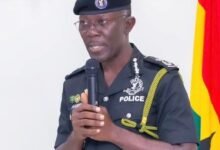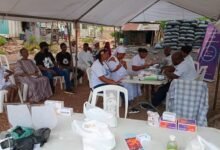
About 200 geoscientists from five African countries have converged in Sunyani of the Bono Region to deliberate on issues, including workable solutions to illegal mining (galamsey) and its impact on the environment.
Drawn from Ghana, Nigeria, South Africa, Mali and Sierra Leone, they would share experiences and research outcomes on various geoscience disciplines, with specific focus on Ghana.

The four-day conference on the theme: ‘Strategic Mineral Exploration and Exploitation Guarantee for Sustainable National Development,’ would feature business meetings.
The meetings would focus on the implementation of African mineral and energy resource code (PARC), designed to align Africa’s resource management practices with global standards.
The participants from Ghana include students from the University of Energy and Natural Resources, Sunyani and members of the
Ghana Institute of Geoscientists (GIG).
Addressing the participants yesterday, the GIG President, Chrisler Ankrah, said the participants would brainstorm on and proffer immediate, short and long terms solutions for implementation at the governmental, ministerial and district levels.
He stated that the experts would also provide insights into the roles technical and professional persons could play to combat and mitigate impacts of water pollution and protect forest cover.
“The alarming increase in water pollution due to unethical mining practices is an issue that cannot be over-looked. It poses a direct threat to our health, environment, and our overall well-being,” he stated.
Mr Akwei Ankrah called for a strong collaboration between his outfit and stakeholders to seek holistic solutions to counter the escalating crisis of illegal mining and its related activities.
He further added that transitioning illegal mining from its current unregulated state into a formal and responsible enterprise that was imperative for environmental protection.
He explained that the sustainable practices must be seen not merely as an option but as necessities to preserve our natural environment while fostering economic growth and livelihoods. The Vice Chancellor of University of Energy and Natural Resources, Professor Elvis Asare-Bediako, stressed the need for Geoscientists to foster interdisciplinary collaborations in order to drive innovations in sustainable practices, like partnering with environmental scientists, medical practitioners, public health workers and policy makers to address the emerging non-communicable diseases.
He also called for intensive education on sustainable resource management practices in the country’s schools in order to safeguard resources for both current and future generations.
The Bono Regional Minister, Justina Owusu, emphasised the critical role geoscientists play in shaping the future of the country by promoting responsible exploration, development and of our natural resources, saying, “your work is at the heart of Ghana’s sustainable development.
FROM DANIEL DZIRASAH SUNYANI








